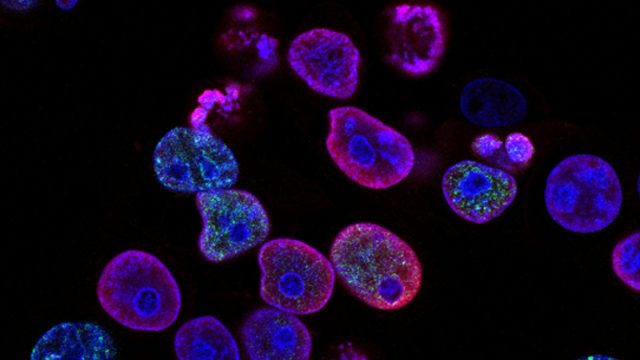
Title: Denmark-California: A Partnership for Sustainability
In 2018, the Danish Government established a Consulate General in Palo Alto, California as part of the first-ever Danish Foreign and Security Policy Strategy. The Danish presence in California is not new; in fact, it has expanded considerably over the last couple of years. The Consulate General, which also houses Innovation Centre Denmark, now numbers more than thirty staff, placing it among the larger Danish representations globally. So why is California of such interest to Denmark?
The answer is closely aligned with core Danish foreign policy priorities, among them being a strong focus on economic diplomacy. Denmark is a small, open economy, generating more than fifty percent of the Gross Domestic Product from exports. Thus, Denmark is heavily dependent on rules-based international cooperation and trade, with a foreign policy emphasis on free, fair, and sustainable trade. By combining a multitude of instruments in the Danish diplomatic toolbox—foreign policy, trade, investment, and innovation promotion, public diplomacy, and government to government sector cooperation—Danish economic diplomacy seeks to actively contribute to welfare and growth in Denmark while promoting fair global trade to the benefit of all. Denmark’s diplomatic prioritization of California rests on the strong belief that a strategic partnership with California offers great mutual benefit politically, commercially, and in the advancement of common interests, especially in promoting sustainable, green growth.
Danish Climate Diplomacy and Shared Ambitions
A key priority for the Danish representation in California is the climate agenda. Denmark has committed to reducing the country’s greenhouse gas emissions by seventy percent compared to 1990 levels by 2030 and eventually to net-zero by 2050, some of the most ambitious climate goals in Europe. The Danish Climate Act has made these goals legally binding. Every year, annual climate action plans will outline concrete policies to reduce emissions for all sectors, and the government is committed to reporting on Denmark’s impact on international emissions as a necessary step in reaching Denmark’s commitments in the Paris Climate Accords. Denmark has also appointed a Climate Ambassador, placing climate issues at the forefront of our international diplomatic efforts. Denmark works with bilateral partners, multilateral institutions (such as the European Union), and the United Nations to increase climate ambitions and reduce emissions globally.
California has set similar and ambitious targets for itself, pledging to reach carbon neutrality by 2045. California’s political commitment, combined with the size of its economy and formidable innovative capacity, makes California an important stakeholder in the green transition. On its own, Denmark as a small country will not make a significant difference in the worldwide fight to mitigate global warming. However, by leading the way nationally and joining forces with international partners such as California, Denmark seeks to punch above its weight in the global climate arena.
Joining Forces to Create Green Growth
In an era where sustainability is increasingly important, Denmark has relevant experience to offer. Denmark is an innovative, prosperous, and well-educated society with a strong focus on sustainability. Denmark has long been a global frontrunner when it comes to clean energy, with more than 46.9 percent of current electricity consumption generated by wind energy in 2019, and a projected 100 percent electricity consumption from renewable resources by 2028. According to the World Energy Council, the Danish energy system is one of the world’s best in terms of security, equity, and environmental sustainability. Danish researchers and companies have considerable expertise in terms of developing sustainable climate solutions. In fact, Danish companies top the list of most sustainable companies in the world, and Denmark leads the field when it comes to implementing the United Nations’ Sustainable Development Goals. The green transition in Denmark has simultaneously increased productivity, job creation, and exports.
California is home to world-class universities, a significant concentration of venture capital, ground-breaking companies, and an unparalleled innovative and visionary hub in Silicon Valley. The Innovation Centre, part of the Consulate General in Palo Alto, works to draw from this knowledge to the benefit of Danish stakeholders. It also promotes research collaboration and partnerships, which can increase competitiveness and growth. Silicon Valley provides opportunities for startups founded in Denmark to grow, as exemplified by the successes of Unity Technologies, Zendesk, and Tradeshift. At the same time, large tech companies from Silicon Valley are placing data centers in Denmark, motivated in part by the reliable access to clean energy.
The trade, investments, and knowledge flows create jobs and wealth in both California and Denmark. There is great potential in leveraging the mutually beneficial relations and respective competences in the advance of shared climate goals, while at the same time boosting green investments, creating jobs, and equitable growth.
Concrete Climate Collaboration
How is Denmark working to deliver on the climate diplomacy policy goals of building strategic partnerships for sustainability? Denmark harnesses diplomatic links, regulatory expertise across different Government departments, and private sector know-how to establish collaboration. Denmark and California have entered into several cooperative agreements, which pave the way for knowledge-sharing and cooperation in the water and energy sectors.
As the recently devastating wildfire season demonstrates, climate change and water scarcity are major challenges for California. Denmark is among global leaders in sustainable water resource management and has established a Water Technology Alliance (WTA), which brings Danish water technology to tackle specific challenges in California within the framework of a Memorandum of Understanding with the Californian Government. Sophisticated Danish electromagnetic technology on sensor-equipped helicopters has, for example, helped gather data to build three-dimensional maps of the ground, identifying aquifers and assisting Californian water agencies in developing sustainable groundwater management plans. This is a concrete example of how knowledge-exchanges can contribute to solving climate challenges.
Energy Efficiency to Reduce Carbon Emissions
Denmark and California both prioritize energy efficiency to reduce carbon emissions, and combining efforts can bring large mutual benefit. The Danish Energy Agency recently signed an agreement with the California Energy Commission to exchange energy efficiency knowledge. The first focus is in industrial processes, where the Danish Energy Agency has relevant regulatory experience with efficiency measures, and Danish industry has demonstrated an ability to increase competitiveness by implementing energy-efficient practices. The next step is energy efficiency in buildings, where there is also potential for lowering greenhouse gas emissions by sharing expertise.
In addition, there is great potential for cooperation within food and agriculture, where each party has the expertise to contribute to joint efforts. The current goal is to help dairy farmers adapt to stricter regulations relative to environmental protection and climate emissions. Both Denmark and California rely on agriculture as an engine for economic growth and share an interest in using climate-friendly solutions to solve global challenges while ensuring that local agricultural sectors stay competitive.
Building Bridges for a Sustainable Future
Cooperation between Denmark and California also spans research and innovation activities, the development of new technologies, and the creation of commercially viable solutions. Neither Denmark nor California yet fully knows how to achieve emissions reduction targets within the given timeframe. Another goal for the Danish presence in California is to facilitate collaboration on the development and scaling of new technologies that can help us combat climate change.
Climate change is a global challenge which can only be met by strong, international partnerships. Denmark and California both consider climate change a top priority. Key drivers for Danish policy in California are building a comprehensive and innovative climate partnership, finding joint solutions, and creating equitable growth for a sustainable future.
. . .
Katrine Joensen is Consul General and CEO of Innovation Centre Denmark in Silicon Valley. She holds a Master’s in political science from the University of Copenhagen and has worked for the Danish Foreign Service for more than 20 years in Europe, Africa, and the United States.
Recommended Articles

This article examines the EU’s cyber diplomacy in Moldova’s parliamentary elections from September 28, 2025, which marked a new chapter in the bloc’s cyber diplomacy. Drawing on analysis of Russian…

Export controls on AI components have become central tools in great-power technology competition, though their full potential has yet to be realized. To maintain a competitive position in…

The Trump administration should prioritize biotechnology as a strategic asset for the United States using the military strategy framework of “ends, ways, and means” because biotechnology supports critical national objectives…